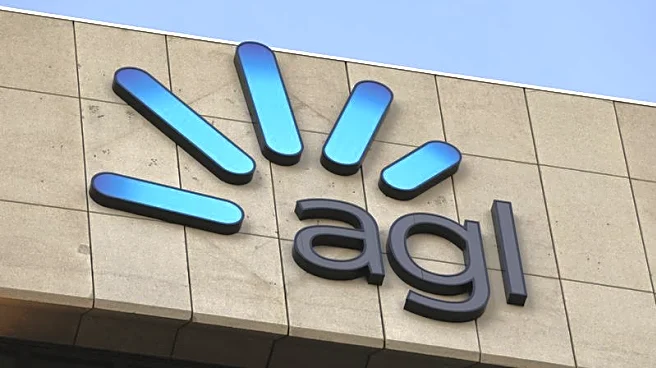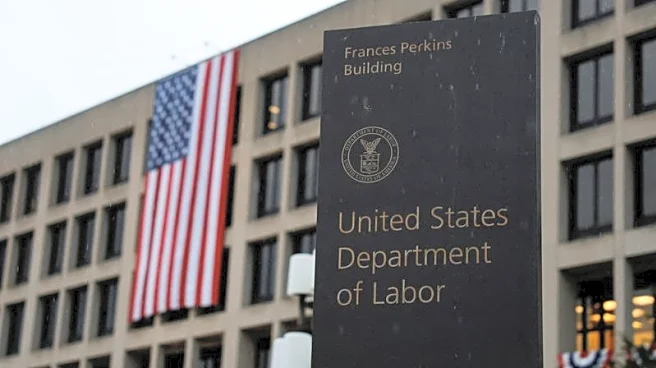What is the story about?
What's Happening?
The U.S. government shutdown has entered its third day, causing concern among investors about potential economic repercussions. Despite the shutdown, stock futures remained relatively unchanged, with the Dow Jones Industrial Average, S&P 500, and Nasdaq 100 futures each gaining 0.1%. The shutdown began after Congress failed to reach an agreement on government funding, with Democrats demanding a spending bill to extend health care tax credits. President Trump has threatened layoffs, which could impact the labor market. The shutdown has also led to an economic data blackout, affecting the release of the September nonfarm payrolls report.
Why It's Important?
The ongoing government shutdown poses risks to the U.S. economy, potentially affecting GDP growth and the labor market. The lack of economic data due to the shutdown complicates the Federal Reserve's decision-making process regarding interest rates. Despite these challenges, the stock market has shown resilience, driven by gains in the artificial intelligence sector. Investors are closely monitoring the situation to assess the shutdown's duration and its impact on economic stability. The shutdown highlights political tensions and the challenges of reaching bipartisan agreements on critical issues.
What's Next?
The continuation of the government shutdown will likely lead to further economic uncertainty, with potential impacts on federal workers and public services. Political leaders may face increased pressure to negotiate a resolution to restore government funding. The Federal Reserve's upcoming meeting will be closely watched for any changes in interest rate policy, influenced by the limited economic data available. Investors will continue to monitor market trends, particularly in sectors like artificial intelligence, which have shown strength despite broader economic concerns.

















